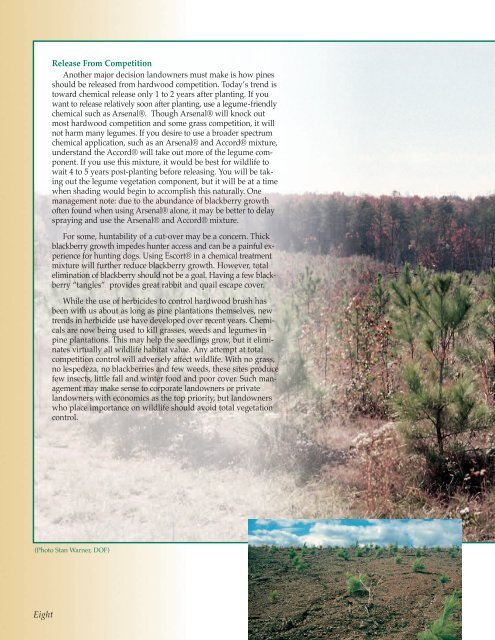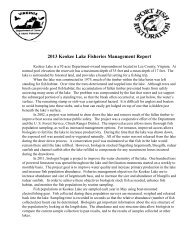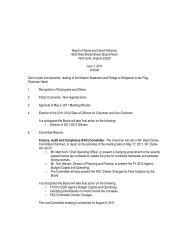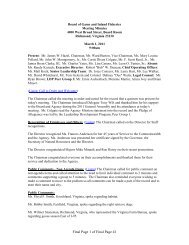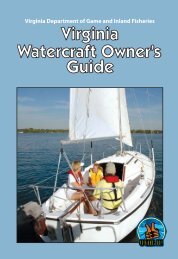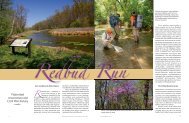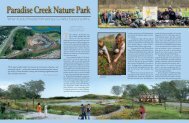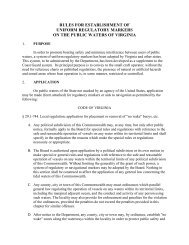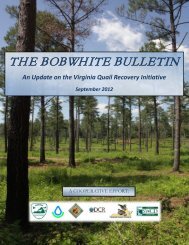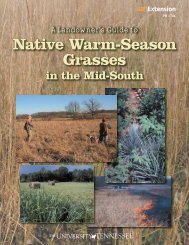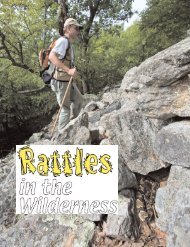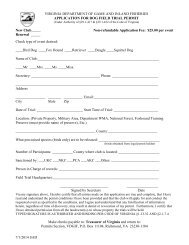Managing Pines for Profit and Wildlife - Virginia Department of ...
Managing Pines for Profit and Wildlife - Virginia Department of ...
Managing Pines for Profit and Wildlife - Virginia Department of ...
Create successful ePaper yourself
Turn your PDF publications into a flip-book with our unique Google optimized e-Paper software.
Release From CompetitionAnother major decision l<strong>and</strong>owners must make is how pinesshould be released from hardwood competition. Today’s trend istoward chemical release only 1 to 2 years after planting. If youwant to release relatively soon after planting, use a legume-friendlychemical such as Arsenal®. Though Arsenal® will knock outmost hardwood competition <strong>and</strong> some grass competition, it willnot harm many legumes. If you desire to use a broader spectrumchemical application, such as an Arsenal® <strong>and</strong> Accord® mixture,underst<strong>and</strong> the Accord® will take out more <strong>of</strong> the legume component.If you use this mixture, it would be best <strong>for</strong> wildlife towait 4 to 5 years post-planting be<strong>for</strong>e releasing. You will be takingout the legume vegetation component, but it will be at a timewhen shading would begin to accomplish this naturally. Onemanagement note: due to the abundance <strong>of</strong> blackberry growth<strong>of</strong>ten found when using Arsenal® alone, it may be better to delayspraying <strong>and</strong> use the Arsenal® <strong>and</strong> Accord® mixture.For some, huntability <strong>of</strong> a cut-over may be a concern. Thickblackberry growth impedes hunter access <strong>and</strong> can be a painful experience<strong>for</strong> hunting dogs. Using Escort® in a chemical treatmentmixture will further reduce blackberry growth. However, totalelimination <strong>of</strong> blackberry should not be a goal. Having a few blackberry“tangles” provides great rabbit <strong>and</strong> quail escape cover.While the use <strong>of</strong> herbicides to control hardwood brush hasbeen with us about as long as pine plantations themselves, newtrends in herbicide use have developed over recent years. Chemicalsare now being used to kill grasses, weeds <strong>and</strong> legumes inpine plantations. This may help the seedlings grow, but it eliminatesvirtually all wildlife habitat value. Any attempt at totalcompetition control will adversely affect wildlife. With no grass,no lespedeza, no blackberries <strong>and</strong> few weeds, these sites producefew insects, little fall <strong>and</strong> winter food <strong>and</strong> poor cover. Such managementmay make sense to corporate l<strong>and</strong>owners or privatel<strong>and</strong>owners with economics as the top priority, but l<strong>and</strong>ownerswho place importance on wildlife should avoid total vegetationcontrol.(Photo Stan Warner, DOF)Eight


